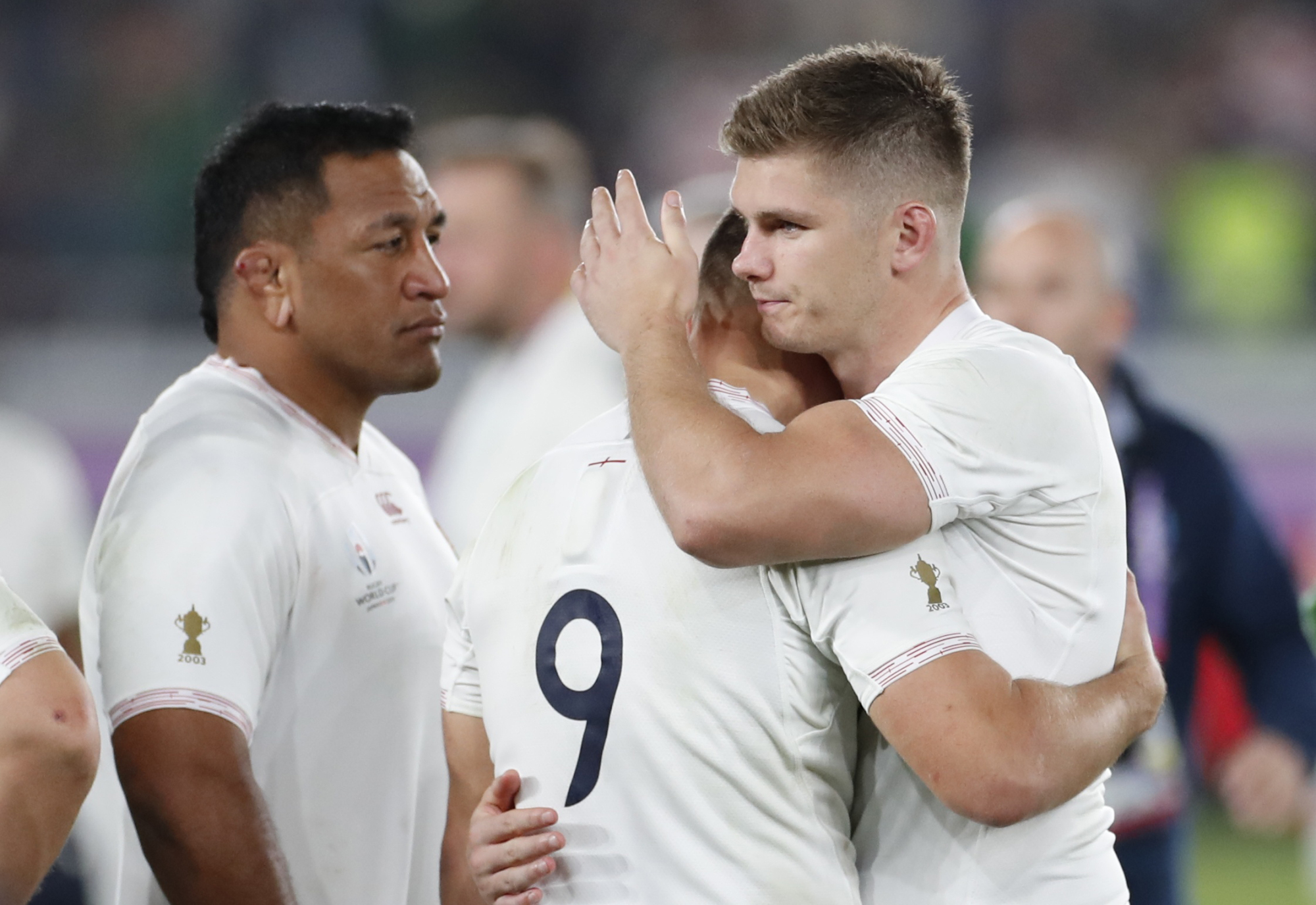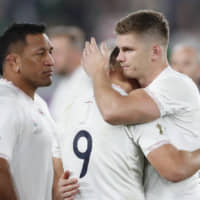England competed in the exact number of matches it entered the Rugby World Cup hoping to play.
But the English left the tournament feeling "massive disappointment," after falling short in the final. That much was easy to see from the demeanor of some of the players and coaches, who either refused to allow silver medals to be placed around their necks or quickly removed them, during the closing ceremony.
England is now 1-4 in Rugby World Cup finals, having only been the winning side in 2003, when it beat Australia and lifted the Webb Ellis Cup in Sydney.
"We're the second-best team in the world, mate," England head coach Eddie Jones said after his team fell to South Africa 32-12 in the 2019 final on Saturday in Yokohama. "We didn't meet our goal. Our goal was to be the best team in the world. And we're the second-best team in the world. So that's how we should be remembered."
Having taken down two-time reigning champion New Zealand in the semifinals a week earlier, England went into Saturday's final as the favorite. But the Springboks beat the odds, saddling the English side with yet another runner-up finish.
"We're obviously disappointed," said lock Maro Itoje, one of the players who refused to put the silver medal around his neck. "We couldn't get the job done today."
Some might consider reaching the final and finishing with a silver medal a big accomplishment. Especially after the 2015 World Cup, when England became the first host nation to be eliminated in the pool stage.
This England team, however, doesn't buy into that line of thinking. Finishing the World Cup with a loss stings either way.
"When you lose, you lose, don't you," winger Jonny May said. "When you come up short, you come up short, I guess."
May was certainly among the English players far from content with the silver medal. Nevertheless, the 29-year-old said he would keep it instead of putting it away somewhere.
"I'll keep the medal," said May, who had two tries at this World Cup. "I'm sure once everything calms down, you get a chance to come back and chill your body, I guess. It was special to be part of (the team), it was special to play at the World Cup in Japan. There's been some great moments."
Asked if he would keep it as motivation to get better, May responded by saying: "I'll just keep it."
"Like I said, I've been very, very, very proud to (put) on an English shirt," he said. "I couldn't have done any more. The team couldn't have done any more. And that's just what happened. It's been very, very special to be part of this tournament, represent our country and give our best."
England captain and flyhalf Owen Farrell shared the same sentiments as May and many of his teammates.
"Yes, massively," Farrell said of how much the team grew during the tourney. "And not just throughout that, but the time we spent together during the course of the preparation for this. I'm massively proud to be part of this team."
Meanwhile, it's a little too soon for England to look four years down the road to the next World Cup in France.
"That's a long way to think about right now," said the 25-year-old Itoje, adding that the team would "definitely be trying to get better next time."
Jones, a 59-year-old who guided Japan to three wins at the 2015 World Cup, evaded a question about whether this England team would stay together for four more years and if he would lead it.
"The only thing I'm worried about now is having a few beers," said Jones, whose contract is through the summer of 2021. "And after we have a few beers today, we'll probably have a few more beers tomorrow. And then, probably Monday. And then, maybe we have to pull up stumps."




















With your current subscription plan you can comment on stories. However, before writing your first comment, please create a display name in the Profile section of your subscriber account page.